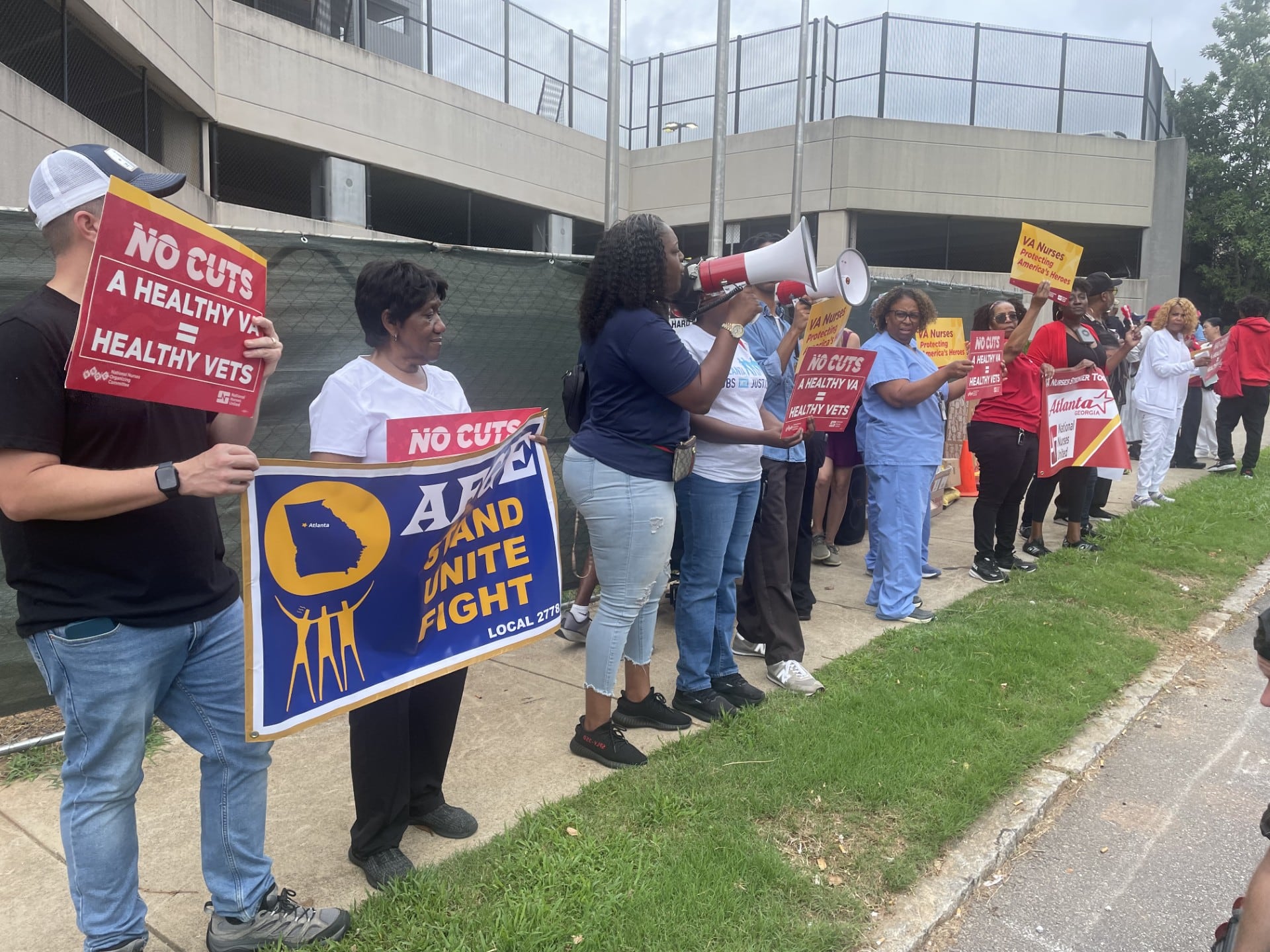What will happen if you remove employees from this program? Following her attendance at a National Nurses United rally against the reassignments and the VA’s decision to revoke the union’s collective bargaining agreement this month, Kuluwa made this statement this week. increases in attempts at suicide. increases in hospitalization once more.
The Kuluwa Mental Health Intensive Case Management team is a small portion of the VA, which has over 450,000 employees across the country. However, the controversy surrounding it sheds light on the more controversial discussion surrounding the Trump administration’s attempts to drastically restructure the VA.
The nurses’ rally took place on the same day as the Office of Inspector General at VA announced the findings of a survey indicating that, as of April, there were 4,434 staffing shortages in VA facilities nationwide. That is 50% more than the previous year.
There were 109 clinical and nonclinical personnel shortages throughout the three VA institutions in the Augusta, Decatur, and Dublin areas combined. According to the OIG, these shortages are not always caused by vacancies but rather by hard-to-fill positions.
NYT is credited.
NYT is credited.
In response to the OIG study, VA press secretary Pete Kasperowicz stated that it is not a valid predictor of staffing shortages because it is not based on actual VA health care facility vacancies.
According to him, the report only enumerates professions that facilities believe are challenging to hire and retain, making the findings wholly subjective, non-standardized, and untrustworthy.
According to him, the VA has a 14% doctor and a 10% nurse vacancy rate.
In response to Kuluwa’s complaints, the organization stated that it is moving certain nurses from low-demand specialty to higher-demand ones, like substance abuse treatment and non-intensive mental health care.
According to the VA, these actions will enhance care for veterans and won’t have an adverse effect on the Mental Health Intensive Case Management program, which is now dealing with many fewer cases than it did in the past.
The government said last month that it was on track to cut about 30,000 employees by September 30. The VA claims that this has been accomplished without the need for a significant force reduction through a federal hiring freeze, deferred resignations, retirements, and regular attrition.
Several requests for information demonstrating the impact in Georgia were not answered by the government. However, it stated that it has several protections in place to make sure that veteran care and benefits are unaffected by these staff reductions. In Georgia and nationwide, the VA is still hiring for mission-critical roles.
According to data released in July, the VA is recruiting far fewer employees than it did the previous year. The number of new hires beginning VA work had decreased by over 53%, while job applications had decreased by roughly 45%.
National Nurses United has sharply criticized VA officials for their announcement that they are expediting and simplifying the process for veterans to receive care from doctors outside of VA.
According to a statement from the nurses’ union, it is extremely troubling and telling that the VA is giving priority to veteran care in the private, for-profit sector, where taxpayers would pay more for care that is subpar compared to VA care and not as well monitored.
Thanks to Jenni Girtman.
Thanks to Jenni Girtman.
Similar worries regarding the agency’s intentions to reassign nurses from Kuluwa’s team were expressed by military veterans who attended this week’s nurses rally at the Atlanta VA Medical Center near Decatur.
According to Chris Purdy, an Atlanta-based Army National Guard veteran who serves as the head of the Chamberlain Network, a nonprofit veterans organization dedicated to preserving democracy, it fits into a larger trend of the administration’s attempts to deconstruct the VA and deny veterans access to healthcare.
Clarkston native Ed Anderson, a veteran of the U.S. Air Force, is likewise worried about the VA’s reform.
According to Anderson, who works for Common Defense, which was established in 2016 by veterans who opposed President Donald Trump’s plan, the veterans who reside in rural areas would be the ones who suffer the most. A VA hospital may be three or four hours away in some locations. Community care is said to be the solution. Many doctors are reluctant to provide community care due to the difficulties in receiving government funding.
According to VA data examined by The Atlanta Journal-Constitution, the government also revealed last month that one of six nurses employed by a program that assists homeless veterans in the Atlanta region will be moved to a team that focuses on patient mental health. Lawrenceville-based registered nurse Julie Ekunwe, who works with the homeless veterans program, is concerned about what that shift might mean.
“The veterans will be the ones who suffer if they reassign people,” she remarked.






